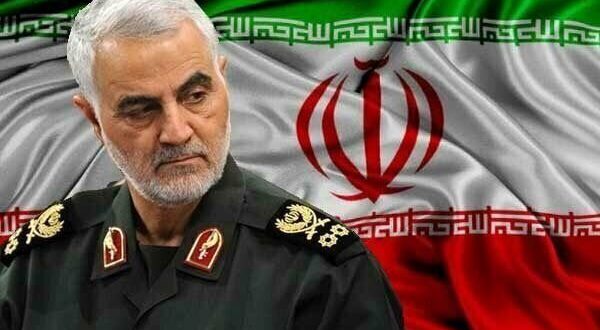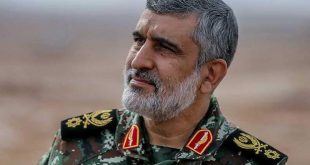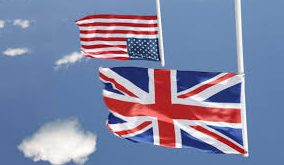General Qassem Soleimani played a direct role in the Zionist regime’s war with the Resistance groups including the 2006 Lebanon war which led to the great defeat of this regime and stopped its occupation of Islamic countries.
Martyr Soleimani plays important role in failure of Israel’s geographical development project
One of the most important strategies of the Zionist regime in the field of foreign policy is the development of the occupied geography. After the victory of the Islamic Revolution, the Zionist regime was only able to occupy more of Palestine by building settlements and failed to occupy more lands in other Islamic countries.
Although this failure had various reasons, the command of Lieutenant General Qassem Soleimani in the Axis of Resistance and fighting against the occupation regime was one of the main reasons, which is briefly examined in this article.
Martyr Soleimani strengthens inhibitory power of Resistance
The most important priority of Martyr Soleimani at the beginning of his assignment as the commander of IRGC’s Quds Force was to strengthen the infrastructure of the Resistance Axis which led to important victories against the Zionist regime.
The Zionist regime has withdrawn several times from the occupied territory. The Sinai desert, southern Lebanon, and Gaza are the three points from which the Zionist regime retreated. The withdrawal from the Sinai desert was done through an agreement with Egypt, but the withdrawal from southern Lebanon and the Gaza Strip occurred as a result of the military defeats of the Zionist regime.
In 2000, after the commanders of the Zionist regime sent field reports to the leaders of this regime, announcing that the war in southern Lebanon had become erosive and there was no chance for victory in this region against Hezbollah fighters, the order to withdraw from south Lebanon was exported.
The Zionist army occupied southern Lebanon in 1978 and entered Beirut in 1982, but later withdrew from this area and remained in southern Lebanon until 2000. The operation to liberate South Lebanon started on May 21st of the same year from the Ghandouriyeh region towards Qantara, including other areas in the south. This process continued until May 25th, and with the departure of the last Zionist soldier, Salim al-Huss, the prime minister of Lebanon at the time announced the liberation of South Lebanon on this day.
Two days after the withdrawal of the Zionists from southern Lebanon, one of the high-ranking officers of the Zionist regime said in a conversation with the Maariv newspaper that 1,580 of our forces were killed and 6,485 were wounded in Lebanon in a very difficult and tragic experience of 22 years. This amount is much more than the casualties of the June 1967 war, during which the lands of three Arab countries were captured by us. Now, if we judge correctly, we see that we did not leave Lebanon, but fled unilaterally without having a trump card in hand”.
This great victory happened only two years after the assignment of General Soleimani as the commander of the Quds Force of the Islamic Revolutionary Guard Corps.
Nabil Qawouq, a member of the executive council of the Lebanese Hezbollah movement, stated that Martyr Soleimani took command of the Quds Force before the liberation of southern Lebanon in 2000, and he was an essential partner in this historic achievement, adding that after the liberation of southern Lebanon, the Resistance turned the region from the period of defeats to the period of victories which created a fundamental change in equations and awakenings.
Gaza is another important point that the Zionist regime had to leave in 2005 after 38 years of occupation. The second intifada was from 2000 until 2005. The continuation and escalation of the Palestinian intifada in different areas of Palestine, the withdrawal of the Zionist regime from the Gaza Strip, and the liberation of Gaza are among the most important developments of the era of Martyr Soleimani’s command.
General Soleimani inflicts repeated defeats on Zionist regime in numerous wars
Another important action taken by Lieutenant General Qasem Soleimani, the commander of the IRGC’s Quds Force was to play a direct role in the war between the Zionist regime and the Resistance groups.
The liberation of southern Lebanon, the second Palestinian intifada, the 33-day war in 2006, the 22-day war in 2008, the 8-day war in 2012, the 51-day war in 2014, and the war with Takfiri terrorists and their supporters in Syria and Iraq from 2011 until his martyrdom in The year 2020 was one of the most important battles in which Lieutenant General Qassem Soleimani played a role in the field and operationally.
In the first 6 wars, the Zionist regime was a direct side of the war and was also the initiator in all these wars. Although the Zionist regime caused a lot of human casualties and material damage to the Palestinians and Lebanon (in 2006) in these wars, this regime could not achieve its military goals in any of these wars. for instance, the 2006 war started with the aim of destroying Lebanon’s Hezbollah, but not only did Hezbollah not disappear, but after this war it became one of the most important and influential players in the political-security system of the West Asian region.
Nasser Qandil, a leading Lebanese analyst, described Haj Qassem’s role in the 33-day war. Haj Qassem insisted on being in the central operation room in the city of “Beirut” next to the martyred commander “Haj Imad Mughniyeh” his friend and constant companion and also next to Seyyed Hassan Nasrallah, the Secretary General of Lebanon’s Hezbollah. During the 33-day war, Haj Qasim was constantly moving between the battlefields and the central operations room. During this time, he did his best to provide everything that the Resistance men in Lebanon needed.
Undoubtedly, the victory of the Zionist regime in the 33-day war could lead to the occupation of this regime in the geography of the Islamic world, but the great defeat of the Zionist regime played an important role in stopping its occupation in the geography of Islamic countries.
The war in Syria since 2011 and the war in Iraq since 2014 were not imposed by the Zionists, but the defeat of the governments of Syria and Iraq meant the victory of the Zionist regime in these wars which could lead to the formation of anti-Resistance governments in these two countries.
US open support of terrorist groups and the division of terrorists into good and bad can be analyzed in this regard. Martyr Soleimani played a role in the battle against Takfiri terrorists. From 2011 onwards, the enemies of the Resistance had taken the approach of spreading terrorism in countries close to the Resistance, including Syria and Iraq, to hit this Axis. While the enemies expected the Syrian regime to change or ISIL to form an Islamic caliphate in Iraq, the Syrian regime remained and ISIL disappeared in Iraq.
Nasser Qandil reminds us that without a doubt if it was not for Haj Qassem Soleimani and his strategic role in the battlefields, the realization of the final victory over the Takfiri terrorism of ISIL in Syria, Iraq, and the region would not have been possible.
Conclusion
Occupation is the most important characteristic of the Zionist regime, as it occupied the land of Islamic countries, established a government, and also had a desire to occupy more geography in the Islamic world, which, except Palestine, was not successful in other Islamic countries.
The role of Martyr Soleimani in deterring the geographical expansion of the Zionist regime was prominent because he succeeded in invalidating the myth of the invincibility of the regime’s army and seriously hindering the geographical expansion of the Zionist regime by creating military infrastructure and improving the deterrence power of the Resistance Axis in the West Asian region.
One of the main reasons for the assassination of Lieutenant General Qassem Soleimani was the same issue.
 صراط عشق صراط عشق
صراط عشق صراط عشق




